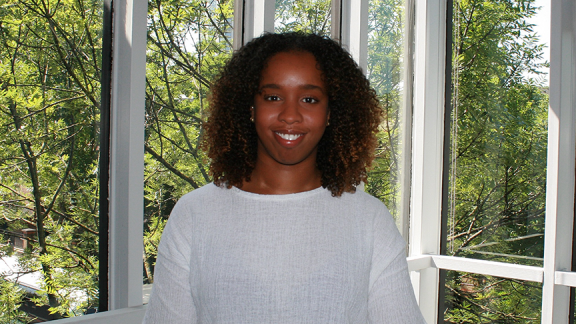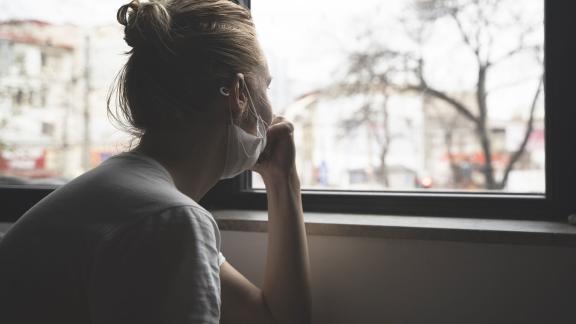Shifting the dial on mental health support for young black men

Mental health services have failed to engage with young black men, writes Kadra Abdinasir, and that won’t change unless the services themselves change. Delivering effective and lasting mental health support for young black men requires a move away from a crisis-driven response, to investment in system-driven projects in partnership with communities.
Evidence shows that young black men are overrepresented in restrictive mental health settings, yet are least likely to access early interventions and community-based support.
Centre for Mental Health recently published a report that shares learning from a three-year programme to engage young black men based in Birmingham around their mental health.
The Shifting the Dial programme was established as a response to the growing and unmet needs of young black men aged 16 to 25. It aimed to shift the dial on their experiences by developing tailored projects that seek to promote and boost their wellbeing while also combatting mental health stigma. The programme was delivered in partnership with Birmingham Repertory Theatre, First Class Foundation, Centre for Mental Health and Birmingham and Solihull Mental Health NHS Foundation Trust.
Young black men’s mental health
We know that young black men are much more exposed to many of the known risk factors for poor mental health, such as poverty, poor housing, living in unsafe neighbourhoods, and poor access to education and employment opportunities. Their mental health is also threatened by daily experiences of racism and discrimination as well as by the harmful and pervasive stereotypes of black men in the media. This further entrenches the stigma associated with mental health and deters young black men from seeking support. They subsequently fall under the radar of mental health services, often until they reach crisis point.
In addition, the COVID-19 pandemic has deepened many of these challenges, with young black men being disproportionately impacted by disruption to education, job and income losses and COVID-19 enforcement measures. Their wellbeing has also been affected by isolation, bereavement, and by the tragic murder of George Floyd in 2020.
How the programme has been responding
The Shifting the Dial programme has been directly responding to these issues and championing systems change at national and local level.
Over the course of the three years, the programme has worked with more than 500 young black men through a series of creative arts and theatre productions, peer mentoring, skills development and psychosocial workshops and events. The sessions were designed to be culturally responsive and create a safe space for young black men to connect and express themselves.
…young men involved in Shifting the Dial reported good outcomes related to their wellbeing, confidence, sense of belonging and understanding of mental health
The programme worked with the young men to engage and mobilise their wider community around mental health. For example, Lightpost Theatre Company (hosted by Birmingham Repertory Theatre) developed a number of public productions such as Constructed, which explored the wellbeing of manual workers. First Class Foundation also worked with young men to deliver sessions and assemblies in schools about their Dear Youngers project and about mental health.
Overall, young men involved in Shifting the Dial reported good outcomes related to their wellbeing, confidence, sense of belonging and understanding of mental health.
Reimagining mental health support for young black men
Delivering effective mental health support for young black men requires a radical shift in thinking. We must move away from a crisis-driven response and invest in projects such as those delivered under Shifting the Dial, to ensure positive and lasting change.
Our report of the programme identifies key learning for system leaders and commissioners of mental health services:
- Invest in and design tailored mental health support for young black men, based within their community.
- Work in partnership with black communities by investing time and effort in developing trusting relationships.
- Ensure young black men have meaningful and consistent opportunities to shape decision-making and have their voices heard.
- Ensure black-led charities can equitably access funding and support, particularly funding and programmes aimed at improving the mental health of black and racialised communities.
Working in partnership with communities and black-led organisations must be the norm, not the exception
This work has profound implications for integrated care systems and providers of NHS mental health services. Working in partnership with communities and black-led organisations must be the norm, not the exception; it must be sustained, not occasional; and it must mean sharing power, not just ‘involving’ people tokenistically. Mental health services have failed to engage with young black men. That won’t change unless the services themselves change. And to do that they have to rethink completely the ways they work and the support they offer so that it is relevant, meaningful, and attractive. Until then, mental health equality is always going to be far out of reach.
Kadra Abdinasir is associate director for Children and Young People’s Mental Health at Centre for Mental Health.
You can follow Kadra and Centre for Mental Health on Twitter:
@Kadra_A_
@CentreForMH



